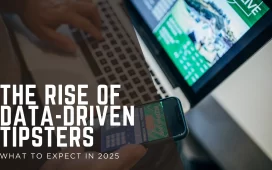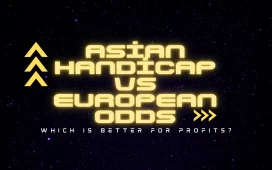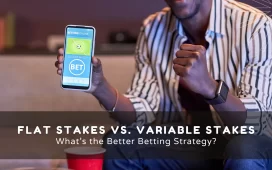In the world of sports betting, there’s a common myth that it’s all about luck—like flipping a coin or spinning a roulette wheel. But that couldn’t be further from the truth. While luck does play a role, long-term success in betting relies far more on strategy, discipline, and data than random chance.
In this article, we’ll explore the science behind sports betting, show how sharp bettors think, and help you understand the difference between flukes and real edge.
Betting Is a Game of Probabilities, Not Certainties
Let’s start with a basic truth: sports betting is about probabilities, not predictions.
A tipster saying, “Team A will definitely win” isn’t being scientific. A better approach is:
“Team A has a 58% chance of winning, but the market is pricing them as if they only have a 50% chance.”
That’s where value lies—and it’s called expected value (EV).
What Is Expected Value (EV) in Sports Betting?
Expected Value is the foundation of betting science. It helps you determine whether a bet is mathematically profitable over time.
The formula:
EV = (Probability of Win × Profit) – (Probability of Loss × Stake)
Example:
You bet RM100 on a football team at odds of 2.50 (which implies a 40% chance of winning). But your analysis says they actually have a 50% chance.
- Win: 0.50 × RM150 = RM75
- Lose: 0.50 × RM100 = RM50
- EV = 75 – 50 = +RM25
That’s a +EV bet—and these are what smart bettors chase, regardless of individual outcomes.
The Role of Luck in the Short Term
Even the best bettors lose a lot—and that’s perfectly normal.
You can place five mathematically great bets and still lose all five. That’s variance. That’s luck. And it’s brutal.
But just like in poker, true edge reveals itself over hundreds or thousands of bets, not a weekend parlay.
Data-Driven Betting: Where Strategy Begins
Modern betting is fueled by data: team statistics, player metrics, injury reports, historical trends, even weather.
Sharp bettors and professional tipsters:
- Track closing line value (CLV)
- Use models and algorithms to find mispriced odds
- Specialize in niche markets where bookmakers are weaker (e.g., lower-league football, esports)
At TipstersAnalysis.com, we verify tipsters based on performance over time, not flashy win streaks. Why? Because long-term strategy always beats short-term hype.
The Psychology of Betting: Mind Over Money
No matter how sharp your strategy is, betting psychology can sabotage your bankroll if you let it.
Beware of:
- Gambler’s fallacy (believing you’re “due” for a win)
- Tilt (making emotional bets after a loss)
- Overconfidence bias (thinking a few wins mean you’ve cracked the code)
Discipline and staking strategy are just as important as your bet picks.
Key Takeaways: Luck vs. Strategy
| 🔄 Short-Term | 📈 Long-Term |
| Mostly influenced by luck | Dominated by skill & edge |
| Emotional rollercoaster | Data and risk management |
| Win/loss swings are unpredictable | EV and volume drive results |
Final Thoughts: Bet Smarter, Not Just Harder
Understanding the science behind sports betting gives you clarity, control, and consistency.
You don’t need to guess. You don’t need to chase.
You need to think in terms of value, probabilities, and long-term returns.
And if you’re looking for tipsters who do exactly that—TipstersAnalysis.com is your home






